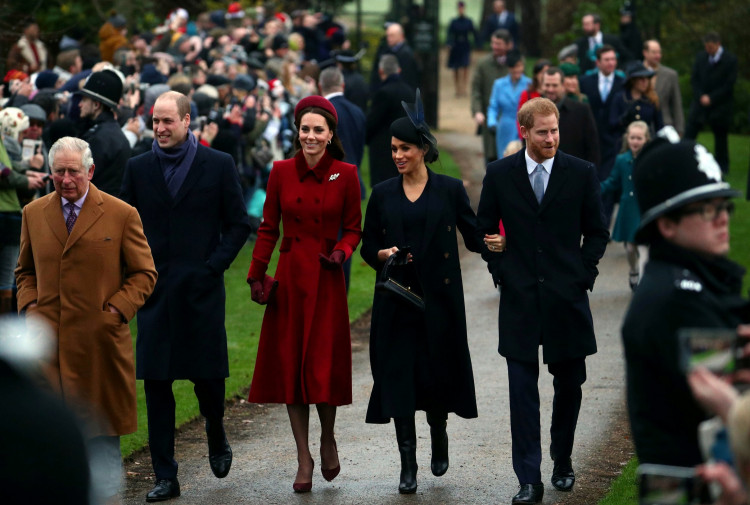A recent polling data indicates a notable shift in the British public's perception of the Royal Family, with Meghan Markle, Duchess of Sussex, and Prince Harry experiencing a marked decline in popularity.
According to an Ipsos poll conducted in January 2024, nearly half of the British adults surveyed hold an unfavorable view of Prince Harry, while Meghan's unfavorable rating stands at 54%. This dip in favorability places Meghan just above Prince Andrew, who holds the lowest approval rating among the royals.
Conversely, the Prince and Princess of Wales, William and Kate, have maintained their positions as the most esteemed members of the Royal Family, with approval ratings of 62% and 61% respectively. Their popularity remains steady, even in the face of recent health challenges faced by both.
Princess Kate's resilience following a "planned abdominal surgery" and King Charles's swift recovery from a prostate procedure have seemingly bolstered their public image, with King Charles's approval rating reaching 51%, a modest increase from previous polls.
This polling data, gathered from British adults aged 18 to 75, reflects a dynamic shift in the public's perception of the monarchy, influenced by a range of factors including personal health, public engagements, and media coverage.
The decline in popularity for Meghan and Harry comes after a series of public disclosures, including the release of Prince Harry's memoir "Spare" and a Netflix documentary detailing their experiences with the Royal Family.
These revelations appear to have impacted their public standing, which has seen a gradual decrease from previous highs; Prince Harry's approval rating was at a robust 87% in January 2018, while Meghan's favorability has plummeted from a pre-marriage high of 40%.
In contrast, the sustained popularity of William and Kate, coupled with the rising approval for King Charles, underscores a public preference for continuity and resilience within the monarchy. Princess Anne's approval rating, standing at 56%, also reflects a strong affinity for her consistent public service and engagement.
The Ipsos findings offer a nuanced view of the monarchy's standing with the British public, highlighting the complex interplay between personal conduct, public service, and media portrayal in shaping public opinion. As the Royal Family navigates these challenges, the fluctuating approval ratings serve as a barometer of the public's evolving relationship with their monarchy, with each member's actions and public persona contributing to the broader narrative of the institution's role in contemporary British society.





